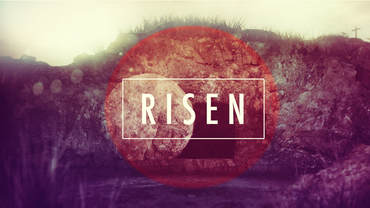 I remember the first time I heard John 3: 16. I was 12. I was at Methodist Church camp and a counselor explained to me it was THE scripture: For God so loved the world that he gave his one and only Son, that whoever believes in him shall not perish but have eternal life. I remember the emotional and intellectual reaction I immediately had, God didn’t need to do that, as my well meaning camp counselor explained that Jesus died on a cross so that I could go to heaven. I remember wondering why God would need to kill someone else on my behalf. I wanted desperately to have a deeper relationship with God, because I truly loved God. John 3:16 was supposed to make everything clear to me, it was supposed to throw me fully into God’s arms, it was supposed to mark me as one of God’s saved. Instead the detailed explanation my camp counselor offered of dripping blood, crushed bones, and collapsing lungs repelled me. It has been a long and winding journey since that summer afternoon in a musty chapel at Finley Lake. I am proud of my 12-year-old self for knowing God didn’t need any blood to love me. And I am deeply indebted to the many theologians, biblical historians, and others who along the journey offered me an antidote for John 3:16. Let me attempt to lay out the theology behind John 3:16*. Simply, it’s about atonement. And just what is that? According to some, it is the reconciliation of God and humans brought about by the life and death of Jesus. It implies that Jesus’ sole purpose was to save humanity. This is why Jesus is referred to by some as a savior. Those who tag John 3:16 on bridges and overpasses have been specifically taught substitutionary atonement or sacrificial atonement. And how is that different from the above definition of atonement? It asserts that Jesus died on the cross as a substitute for sinful humanity. He was punished for our sins, in our place. Are you ready for this? Because it’s sick! This dominant theological view implies that God was hungry for revenge, because humanity had failed God over and over again. God could only forgive humanity—make things right between us and God—through a punishment so severe it ended in a gory, blood soaked death on an instrument of torture, the cross. Does this turn your stomach like mine? This violent view asserts that God and humanity could never be in relationship with one another unless God got blood, plain and simple. I flatly reject John 3:16. I vehemently oppose this concept of God. It is not true that God could only love me if Jesus died a brutal death. I believe John 3:16 glorifies violence and casts God as a child abuser. I’ve marked John 3:16 out in my bible. Instead, I have been made at-one-with-God because God’s endless grace has called out to me my entire life, like a mother calling their child inside for dinner at the end of the day. I have been made at-one-with-God because it was God who knit me together in my mother’s womb and this God has never left me. My God, the God Jesus calls out to as Abba (Aramaic for daddy) is as tender as my father was each evening as I crawled onto his lap as a child. My God does not hold a belt, waiting to whip me for my day’s transgressions. Nor does God hold a belt that he used to whip someone else for my transgressions. Richard Rhor points out that salvation is much more about at-one-ment from God’s side than any needed atonement from our side. Jesus did not come to change the mind of God about humanity; Jesus came to change the mind of humanity about God. God does not love us because we are good; God loves us because God is good. Nothing we can do will either decrease or increase God’s eternal and infinite eagerness to love! I was right as a 12 year old: God loves me regardless and I am free to wrap myself in God’s divine embrace always. So why the cross? Why was Jesus crucified? That’s for another blog. Stay tuned. And yes, you have permission to cross John 3:16 out of your Bible. You belong in the Christian community even if you think that God abhors violence instead of requiring it. Maybe you belong in the Christian community because you think that God abhors violence instead of requiring it. All that blood on the cross was sickening and had nothing to do with you. *I am not and do not want to be a professional theologian. If you need more information about theories of atonement or the historical emergence of atonement theology in the western church—contact me! I would be more than happy to point you in the right direction.
0 Comments
 This blog was first published in 2012. It has been updated some, but still reflects my irrational and joyful attachment to the resurrection. *Be warned, I am about to admit to complete, irrational, unreasonable belief.* I am a mostly rational person when it comes to faith. But there are a few things that I believe that are irrational—at least from a 21st century scientific perspective. The biggest: I believe in the resurrection hook, line, and sinker. The virgin birth—totally not convinced. I think Mary and Joseph had sex. Good for them! Jesus walking on water? Powerful metaphor. But the resurrection, I believe in literally, to my very core. Perhaps this is just faith. Perhaps this is just hopeful thinking. I’m not sure. I am a questioning believer and an adamant follower of Jesus. I’m not big on doctrine, but I’m an ordained minister—go figure? I’m the first person to admit I think the Bible is riddled with mistakes and even some blatant mistruths, that prayer is complicated and mostly only changes my internal attitudes, and the doctrine of substitutionary atonement (read my former blogs) is hog wash. Don’t worry; I can’t be kicked out of the church for saying these things. I’ve already broken my ties with any denomination. But the resurrection? The belief that Jesus was dead and three days later walked out of the grave, appeared to the women, stuck out his bloody hands to Thomas to reassure him, and then ate fish beside the sea shore with the other disciples who had fled and gone back to business as usual. Yes, I believe it all. A faithful companion along the journey commented: “Sorry, Abby, I can’t worship a zombie.” I respect that and even find the comment comically accurate. So why do I believe in the resurrection? I don’t have an answer. At least not a good answer. I can only offer the following: I believe in God and for this reason, I believe in hope, even when realistic people tell me to be hopeless. I gave up believing that God could rescue starving orphans, Haitians from earth quakes, a mother with debilitating depression, victims of violence, struggling families, a child with every learning disability known (my list could continue). So if I believe in a powerless God and every day I encounter the utter brokenness of this world, then what’s the point? I am left with no choice than to believe in a God who does something! I believe in a God who loves. I believe in a God whose love is more powerful, more healing, and more creative than anything we broken humans can imagine. I believe in a God who invites us into a dance of co-creating love. I believe in a God whose love is active in this world through this dance of co-creation. I believe in a God who grants hope to the hopeless. Real hope. What does this have to do with the resurrection? The resurrection is the ultimate expression of God’s co-creating love. God did not possess the sort of military power that could defeat the systematically violent Roman Empire. Hence Jesus died a brutal death on the cross. But God did possess the power of co-creating love that sprang Jesus from the grave. Together, Jesus and God defeated suffering and death with this co-creating love. The resurrection, the defeat of the grave, continues to offer today the final word: love! This final word gives me hope for the starving orphan, the depressed mother, the individual facing PTSD after a childhood filled with violence, the cancer patient, the Puerto Rican father rebuilding his community. The resurrection calls me to dance with love on my darkest days, when I am sure there is only suffering to be found in the world. The resurrection calls me to co-create in this world, instead of sitting and weeping. The resurrection calls me to roll up my sleeves, to pull out my check book, to fall to my knees, to utter a prayer, to hold on. The resurrection is God’s final proof that love is more powerful than anything else, even evil, even death. I know that what I believe can be questioned. I know my systematic theologian husband can poke holes in my argument. I don’t care. It’s what I believe. It’s the experience of one broken disciple, following Jesus, placing one foot in front of the other on the journey, and feeling powerlessness yield to an even greater power—love. |
Categories |
 RSS Feed
RSS Feed